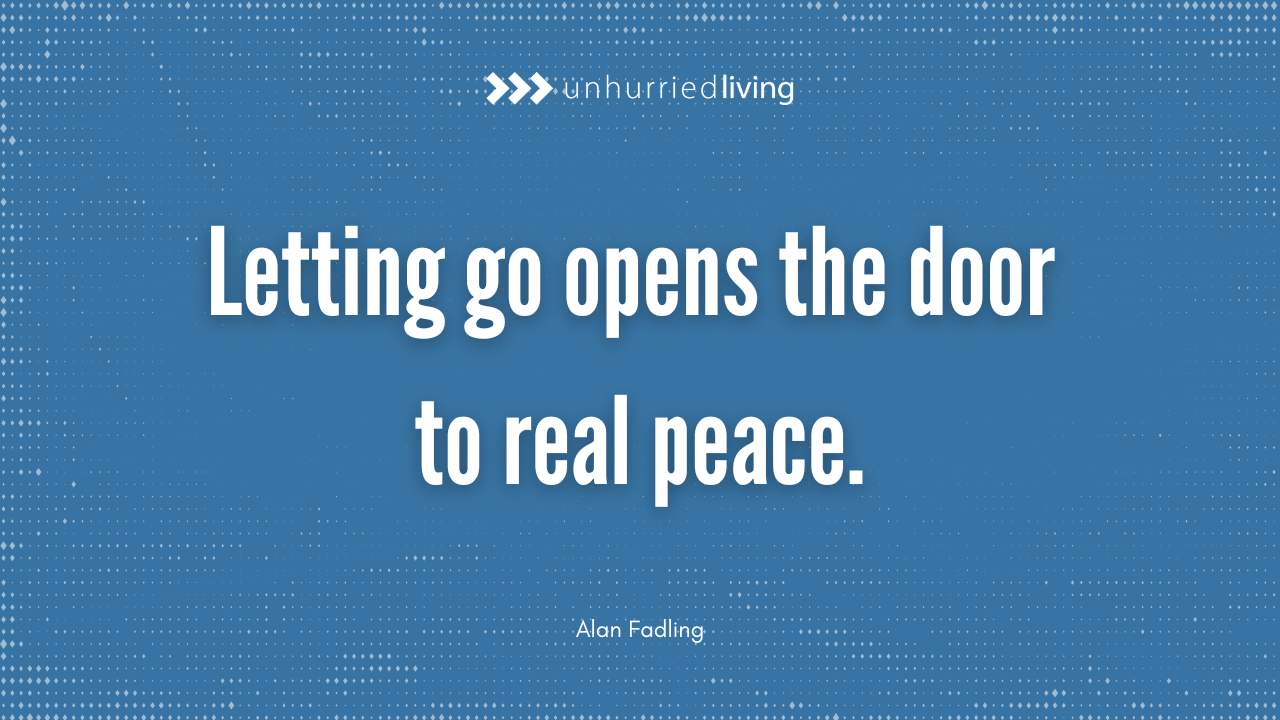The Peace of Releasing What Was Never Yours
May 28, 2025
Blog by Alan Fadling
One of the many gifts Dallas Willard gave us is the simple yet transformative insight that we do best when we leave outcomes in God’s hands. In his book Renovation of the Heart, Dallas writes:
“What we learn most in his yoke, beyond acting with him, is to abandon outcomes to God, accepting that we do not have in ourselves—in our own ‘heart, soul, mind, and strength’—the wherewithal to make this come out right, whatever ‘this’ is.” (p. 209)
We are responsible for our efforts but not for the results. A farmer plants and waters, but the mystery of growth is in God’s hands. Likewise, our role is to be faithful, not to control. This perspective frees us from burnout and allows joy to emerge in the process.
The Role of Trust in Relational Depth
Our desire for control often extends beyond circumstances to people. But most of us resist being controlled, and relationships suffer under the weight of manipulation.
True relational depth grows in the soil of trust. When we learn to trust others—and God—we create space for authenticity and flourishing. Trust allows us to stop grasping for control and to start truly listening. Vulnerability becomes the birthplace of deeper connection.
One of the ways God cultivates trust in us is through waiting. Waiting is rarely easy, but it teaches lessons we could learn no other way. In his book The Jesus Way, Eugene Peterson writes:
“We stop, whether by choice or through circumstance, so that we can be alert and attentive and receptive to what God is doing in and for us, in and for others, on the way. We wait for our souls to catch up with our bodies. Waiting for the Lord is a large part of what we do on the way because the largest part of what takes place on the way is what God is doing, what God is saying.” (p. 97)
Waiting on God is not inactivity. It is an active stance of trust, acknowledging what God alone can do. It shifts our focus from frustration to faith.
Surrender as a Practice of Faith
Surrender is not a single decision but a daily, sometimes hourly, practice. It is the repeated choice to entrust our worries, our plans, and even our dreams to God. This is not passive resignation but active faith in a loving God who works all things for our good in his time.
Humility is one expression of surrender. Our culture often equates humility with weakness, but the ancient wisdom of the Desert Fathers tells a different story. Abba Nesteros once said:
“Humility, therefore, is the teacher of all the virtues. It is the surest foundation for a heavenly building. It is the personal and splendid gift of the Savior. It achieves all the miracles which Christ worked and does so without risk of vanity. It is a disciple of the gentle Lord by virtue not of astounding miracles but by the power of its patience and lowliness.” (Conference 15, chapter 7)
Jesus describes himself as “gentle and humble in heart” (Matt. 11:29). Humility is not self-degradation but being rooted in reality. It is the soil in which a truly good life grows.
Surrender may feel counterintuitive in a world that prizes independence, but it is a courageous act of faith. It’s acknowledging that we don’t have all the answers—and we don’t have to. When we release control, we make space for divine strength to work through our limitations. Surrender is not a sign of failure but a step toward freedom.
The Invitation to Trust
Letting go of control is not about passivity but about opening up—to God, to others, and to the life we were meant to live. We don’t have to carry the weight of self-sufficiency. Instead, we are invited to walk in step with the God who is able, loving, and faithful.
Good news: You’re not in charge.
May you feel the lightness of releasing what was never yours to hold and the deep peace of trusting the One who holds all things together.
For Reflection:
- Where in your life do you find it hardest to release control and trust God with the outcome? How might surrendering in that area bring greater peace?
- How has waiting on God shaped your faith? What have you learned in seasons of waiting that you couldn’t have learned otherwise?
- Humility, trust, and surrender often feel countercultural. How might embracing these postures change the way you lead, love, and live?


